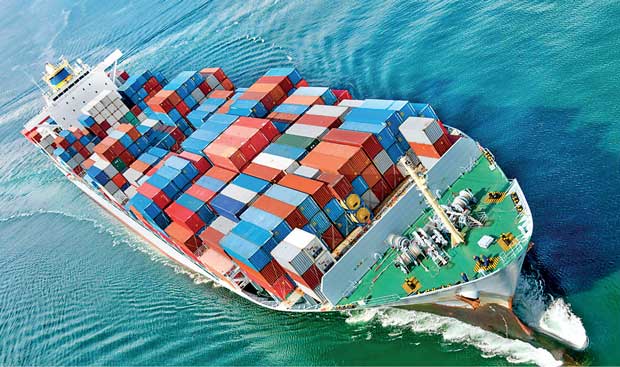07 Dec 2017 - {{hitsCtrl.values.hits}}

 The World Trade Organisation (WTO) is back on the global economic radar. Its 11th Ministerial Conference (MC-11) – the highest decision-making body that meets every two years – will convene in Buenos Aires, Argentina, from December 10 to 13, 2017. While expectations for a major trade deal at the conference are low, Sri Lanka must continue to support the WTO-led multilateral trading system in the new Trump and Brexit era.
The World Trade Organisation (WTO) is back on the global economic radar. Its 11th Ministerial Conference (MC-11) – the highest decision-making body that meets every two years – will convene in Buenos Aires, Argentina, from December 10 to 13, 2017. While expectations for a major trade deal at the conference are low, Sri Lanka must continue to support the WTO-led multilateral trading system in the new Trump and Brexit era.
Long and winding road from Doha to Buenos Aires
Multilateral trade liberalisation under the WTO has had a difficult decade. Despite the initial optimism surrounding the Doha Development Round of negotiations that began in 2001, multiple deadlines have come and gone without any breakthroughs on the most contentious issues.
At the last Ministerial Conference in late 2015, the negotiators could not even agree on whether they should continue the Doha Round. This impasse has left the WTO to focus on more modest outcomes like the Trade Facilitation Agreement that was announced at its 2013 Bali meeting and which Sri Lanka ratified last year. MC-11 looks set to continue this trend by trying to find agreement on a few specific topics, thereby supporting the quest for multilateral trade liberalisation, if only on a more modest level.
What’s up for negotiation and where should Sri Lanka stand?
Three main areas are up for discussion in Buenos Aires. The first is a possible agreement on the reduction and elimination of fisheries subsidies, which encourage unsustainable overfishing of the world’s oceans. The second is how to ensure free trade in the booming e-commerce sector and the third is the long-standing issue of reducing the support that some governments - most notably in developed economies - provide to their agricultural sectors. Agricultural subsidies, in particular, make it difficult for exporters from developing countries like Sri Lanka to compete in these markets and keep global prices artificially low.
Of these three topics, Sri Lanka should focus its limited trade negotiating capacity and lobbying capital on advocating for a successful outcome on the reduction of global fisheries subsidies. This is both the least contentious issue up for negotiation and the area where Sri Lanka stands to benefit most from an agreement.
While fisheries are not a major part of the Sri Lankan economy, accounting for only 1.5 percent of gross domestic product and 1.7 percent of exports in 2016, the sector provides employment to almost 10 percent of the labour force and is ripe for further development as recognised in the government’s Vision 2025 plan. A reduction in the estimated US $ 35 billion spent on fisheries subsidies globally will help to level the playing field for Sri Lankan fishermen and create export opportunities for the local industry.
E-commerce also has substantial economic potential for Sri Lanka as the world economy transits to the so-called ‘Fourth Industrial Revolution’ (based on digitisation and artificial intelligence). However, discussions of international trade rules remain in their infancy and several developing economies have voiced concerns about whether they have much to gain from an agreement when they have limited access to technology. As such, e-commerce seems more likely a prime candidate for a future plurilateral or sector-specific agreement among like-minded economies - which may include Sri Lanka - than a full-scale multilateral deal in Buenos Aires.
Reducing domestic support to agriculture is the area least likely to be resolved in Buenos Aires. It remains highly contentious and the continued power of agricultural lobby groups in advanced economies makes a significant reduction in such support a distant prospect. In addition, as Sri Lanka is a net food importer, a reduction in global support to agriculture would have a mixed impact on the local economy.
Sri Lanka must also provide robust defence of multilateral trading system
Even more important, however, are the issues not explicitly on the negotiating table in Buenos Aires, specifically the increasing strains on the WTO’s Dispute Settlement Mechanism (DSM). The DSM has played a crucial role in mediating trade disagreements between countries over the last two decades.
However, the US has criticised the DSM for unfairly favouring other nations (particularly China) and is blocking the appointment of judges to its highest appeal body until the system reformed; this risks bringing the DSM to a complete halt. Without a working DSM, the WTO’s trading rules would become toothless and governments would face few consequences for violating them. In the worst case, this could spark a tit-for-tat trade war between major powers.
Sri Lanka must lobby other governments to ensure a robust defence of the WTO’s DSM in Buenos Aires, while putting its support behind sensible reforms to moderate the US position. As a small open economy, Sri Lanka benefits significantly from being able to engage with economies many times its size on an equal basis through the WTO. The DSM will only become more important as Sri Lanka seeks to develop its economy by boosting exports.
Batting for WTO
The WTO’s failure to make significant progress towards further multilateral liberalisation in recent years does not mean its previous achievements should be discarded. While attempting to find agreements on the areas that are most beneficial to its economy, Sri Lanka should make clear that the global trading system is worth defending, as it provides a level playing field for small and large countries alike. This is a fight that will go far beyond Buenos Aires.
(Dr. Ganeshan Wignaraja is Chair of the Global Economy Programme at the Lakshman Kadirgamar Institute of International Relations and Strategic Studies (LKI). Adam Collins is a Research Fellow at the LKI. The opinions expressed in this article are the authors’ own and not the institutional views of the LKI. They do not necessarily represent or reflect the position of any other institution or individual the authors are affiliated with)
04 Jan 2025 3 hours ago
04 Jan 2025 3 hours ago
04 Jan 2025 4 hours ago
04 Jan 2025 4 hours ago
04 Jan 2025 5 hours ago